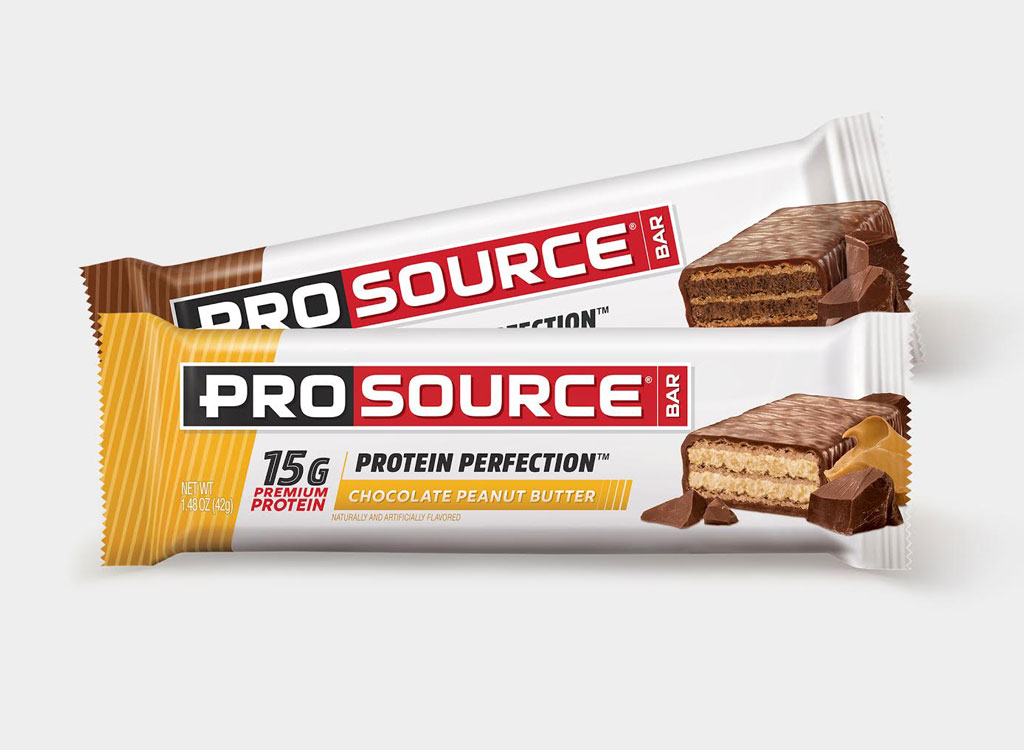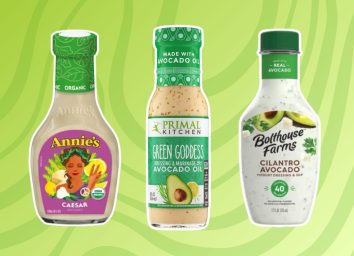The Best-Tasting Low-Carb Protein Bar on the Market

Are you looking to refuel on the fly while toning your lean physique? Grabbing a low-carb protein bar before you step out of the gym is a solid solution to furthering your muscle-building plan. But with countless fitness bars littering the market, how do you know which pick will help you reach your goals the fastest? That’s where ProSource comes in.
Their protein bar product line is made with a superior protein source and is free of unnecessary additives you see in most bars. It’s protein in its purest form.
Curious to learn more? We break down the benefits below, but we bet you wouldn’t even need to read on if you tasted a bite first. Actually, you might be even more impressed that a bar this effective at stimulating muscle growth can taste so good (think: Kit Kat bar or a Butterfinger), so you should probably continue reading anyway.
Your Protein Source Matters
You might be under the impression that protein is protein, so it doesn’t matter where you get it. However, that is a myth we’d like to squash. One of the most common proteins you’ll see in bars is soy protein. While, yes, there is protein in soy, it’s not the optimal source of this muscle-building macronutrient.
Here’s why: Researchers from Canada-based McMaster University wanted to see which protein source would stimulate muscle growth best by measuring by a metric called “muscle protein synthesis.” They had young, healthy men consume a protein drink after resistance training, which either had soy protein isolate or whey protein. The whey protein drink was 31 percent more effective at stimulating muscle synthesis than soy after exercising. This superiority carries through even when you aren’t exercising. The McMaster researchers discovered that whey was also 18 percent more effective than soy at rest, as well. This study wasn’t the only one to uncover the inferiority of soy protein. An earlier American Journal of Clinical Nutrition study also confirmed that milk-based proteins promoted muscle protein accretion to a greater extent than do soy-based proteins following resistance exercise,
The ProSource bar sets itself apart from the competition by combining a low-carb formula with bioavailable proteins—which means zero inferior proteins like soy protein. Instead, ProSource bars are crafted with functional proteins such as hydrolyzed whey isolate and ultrafiltered whey isolate. Hydrolyzing whey breaks down protein into smaller components, which increases the amount of free amino acids as well as improves digestibility, according to a Food Chemistry study.
Why Go Low Carb?
Increasing your protein intake while simultaneously reducing carbs has been shown to help dieters lose weight and maintain their success in the long run. And isn’t that what we all want? At only 9 grams of carbs per bar, ProSource is one of the lowest carb bars on the market. (Trust us, we looked: 28 Low-Carb Protein Bars for Muscle Growth)
More importantly, the fact that ProSource bars are so low in carbohydrates is mostly attributed to their commitment to a simplistic, functional bar. There are no sugar alcohols (which may cause gastrointestinal upset) and, perhaps even more impressively, no filler fibers. What are filler fibers, you ask? First, let’s talk about “net carbs.”
The Problem With ‘Net Carbs’ and Synthetic Fibers
While many bars on the market claim to be “low-carb,” they only gain this label because they’re really calculating “net carbs.” Net carbs is actually a calculation done by subtracting the grams of fiber and sugar alcohols from total carbohydrates. The theory behind it is that these two types of carbohydrates don’t affect blood sugar the same way that other carbs, like sugar, do. Foods that have a low net carb count don’t have a significant impact on blood sugar and therefore are less likely to cause weight gain—in theory.
You see, most manufacturers now try to lower their net carb count by jacking up the amount of synthetic fiber and sugar alcohol included in each bar. The issue? Your body doesn’t treat these synthetic fibers the same as it would with naturally-occurring dietary fiber. So rather than passing through your body undigested—which promotes feelings of fullness, increases bowel movements, and lowers blood glucose—some of these synthetic fibers are actually partially digested.
For example, one common protein bar fiber (which can be found at levels of up to 17 grams per bar) known as isomalto-oligosaccharides, has been found to be digestible and would actually act like a replacement for sugar (not fiber) in product formulations. So something that acts basically like sugar is being passed off like digestion-slowing fiber. That doesn’t sound so “low carb” to us.
In fact, in March 2018 the FDA confirmed that isomalto-oligosaccharides are not on their list of non-digestible carbohydrates that meet the definition of dietary fiber, yet manufacturers currently still list them under dietary fiber on labels.
Lucky for you, you don’t have to worry about any of this when you choose ProSource.
Why You Can Rely On ProSource for Actually Being ‘Low-Carb’
With just 9 grams of carbs per bar, you’re probably wondering how ProSource manages to achieve such a lowly count. Unlike the companies we just mentioned that stuff their bars with questionable fillers and indigestible sugar alcohols that are notorious for causing gastrointestinal upset, ProSource sweetens its bar with a mere 4 grams of real sugar combined with sucralose and shys away from using synthetic fibers.
Major bonus points: With this mini meal, you won’t have to fret the awkward churning noises your stomach makes trying to digest sketchy sugar alcohols. The cherry on top? Your Reeses and Oreo cravings will be guiltlessly crushed by ProSource’s Chocolate Peanut Butter ($29.88 per 12-pack, Amazon) and the Double Chocolate Creme ($29.88 per 12-pack, Amazon) flavors.








